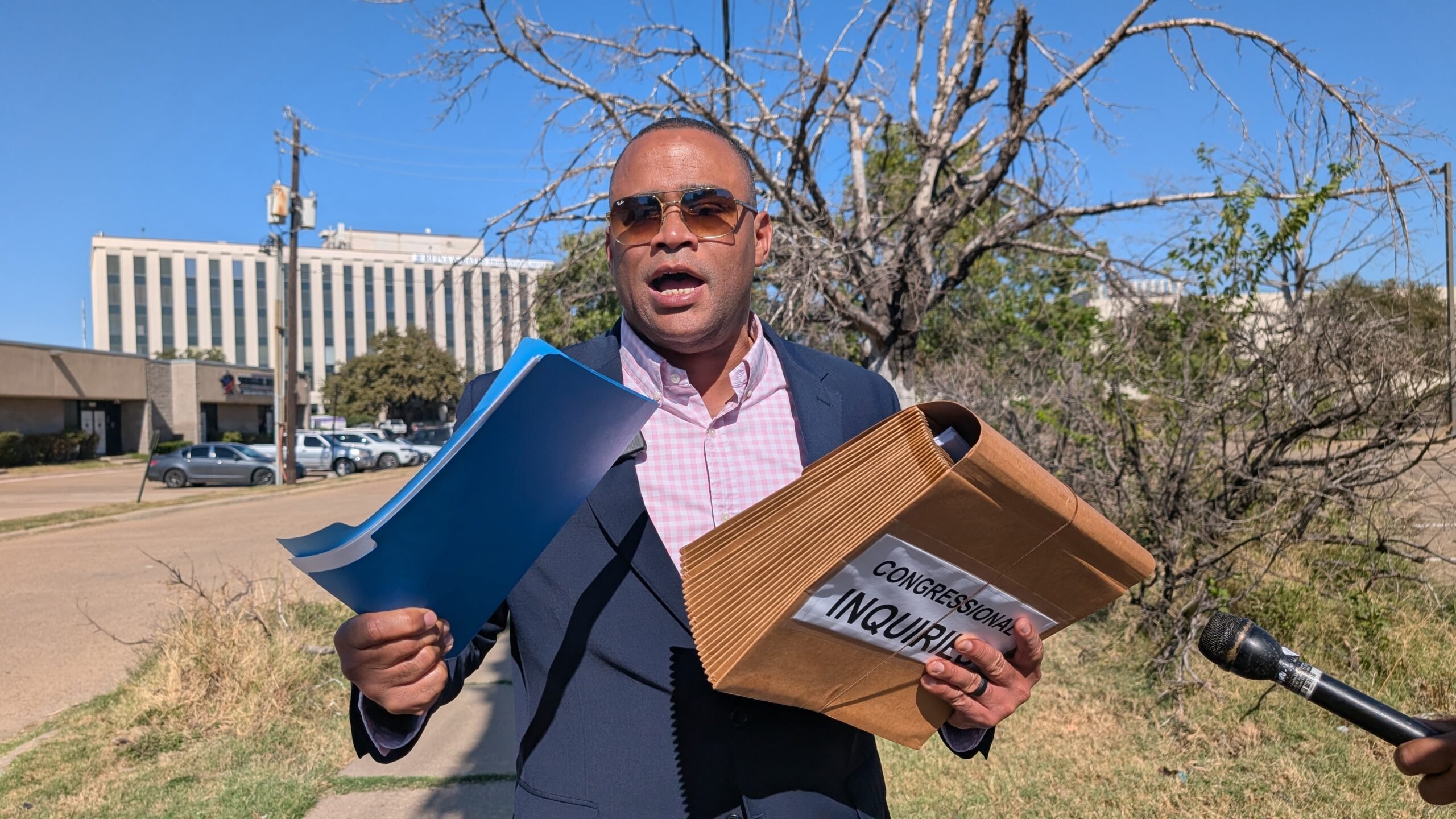What’s Behind the Supposed Voter Fraud in Houston

If Democrats ever hope to win a statewide race in Texas—which they haven’t done in 16 years—they will have to expand the electorate. Republicans have shown they will consistently win in Texas if the two parties continue to fight over the same sliver of persuadable voters.
There are plenty of new voters to be had for Democrats, especially in Houston. About 60 percent of eligible voters in Harris County are non-Anglo. So it follows that increasing the number of registered voters, especially Latinos—and getting those voters to the polls—will benefit Democrats.
Meanwhile, Republicans would like to see the electorate remain as it is. Keeping people off the voting rolls benefits the GOP.
That’s the larger context behind the recent controversy over supposed “voter fraud” in Harris County. (It’s not really voter fraud, but more on that in a minute.)
When a nonprofit and nonpartisan group named Houston Votes began canvassing Harris County this summer, registering tens of thousands of potential voters, Republicans saw a Democratic threat.
So the Harris County Tax Assessor—a lame duck Republican named Leo Vasquez, whose reelection effort came up short in this year’s GOP primary—went on the attack.
On Aug. 24, Vasquez held one of the most bizarre press conferences you’ll ever see. He announced that the Harris County voter rolls were under an “organized attack” and raised the specter of ACORN-like voting fraud (which also wasn’t really voter fraud, but that’s another story).
Vasquez said his office had found thousands of faulty voter registration forms submitted by Houston Votes, including duplicate registrations and non-citizens trying to register. In one case highlighted by Vasquez, one person had tried to register six times.
At times, the press conference looked like a political rally. The room was packed with cheering Tea Party activists—associated with a group called King Street Patriots, which was taking credit for finding the flawed registration forms. A spokesperson for the tax assessor said the group had found some errors.
(A bit of background: The tax assessor’s office—in addition to its tax duties—is also the county’s voter registrar and maintains Houston’s voter rolls. For a low-level county office, it’s attracted a lot of attention lately. Conservatives believe the office is the last line of defense against massive Democratic voter fraud in Harris County. The Democrats say the tax assessor is running a partisan campaign to scrub the voter rolls. On Sept. 2, the Texas Democratic Party filed suit against the tax assessor’s office based on these accusations—just six months after settling a similar lawsuit stemming from the 2008 election.)
Houston Votes quickly admitted that some of its registrations shouldn’t have been submitted. They were honest mistakes, not fraud, said Fred Lewis,who heads the Houston Votes, which often happen during a large-scale registration drive. He says the group has fired the canvassers who submitted invalid voter registrations.
“It’s not a pristine process and everyone knows that,” Lewis said. “Common mistakes by canvassers aren’t fraud.”
Indeed, it’s difficult to see how voter fraud could have resulted from these flawed registrations. The non-citizens checked the non-citizen box on each form, and the tax assessor office easily weeded them out. If these non-citizens were trying to commit voter fraud and vote illegally, why wouldn’t the they have simply checked the “citizen” box on the registration form? Why openly admit they’re non-citizens so the authorities could toss out their registrations? If this was organized fraud, it was one of the worst—and most obvious—frauds ever attempted.
The more likely scenario is that these several dozen non-citizens didn’t know they couldn’t vote and filled out a card, which the canvassers let slide, perhaps because they wanted to get paid, and Houston Votes didn’t catch the faulty cards amid the 25,000 registration cards it was processing at the time.
Even the person who tried to register six times with the same address and the same name—had that person been successful—still could vote only once. A person can show up with six registration cards, but if you’ve got the same name and the same address, you probably can vote just once.
If this person wanted to vote six times, why wouldn’t she submit different names or different addresses to help mask her identity?
I looked over the voter cards in the power point that Vasquez presented at his press conference. The woman who tried to register six times lists the same address on each card. What’s interesting is that the registration cards were filled out by five different canvassers, and all on the same day.
It’s pretty clear what happened. Houston Votes was canvassing a neighborhood and in a bit of disorganization, numerous canvassers hit the same houses, perhaps some were trying to pile up cards to increase their pay. The evidence here seems to support Lewis’ claim of honest mistakes.
(A note of clarification on how people were paid: Houston Votes says it pays canvassers by the hour. But the tax assessor’s office says canvassers told residents that the more cards they turned in, the higher their pay. At the very least, it seems some canvassers may have mistakenly believed they would be paid based on number of cards. But even so, that doesn’t seem to constitute organized fraud.)
Fred King, a spokesman for the tax assessor’s office, couldn’t produce any direct evidence of fraud, but said that Houston Votes high error rate was suspicious. “Fraud is in the eye of the beholder, until there’s a conviction,” he said.
The tax assessor has referred the matter to the Harris County DA’s office, King said.
If this wasn’t some “organized attack” on the voter rolls, as Vasquez stated, then what was going on?
Lewis said that Vasquez’s press conference was a politically motivated show, a “gigantic ambush,” designed to curtail the number of people registering to vote.
The driving force here appears to be Tea Party activists. The King Street Patriots—a well-funded group with a slick Web site—has started a spin-off outfit called True The Vote, which bills itself as a nonprofit, but clearly has some partisan intent.
Watch this 10-minute video posted at truethevote.org and you’ll see what I mean.
True the Vote bills itself as a collection of nonpartisan “citizen activists,” which is how some media reports have referred to them. But it isn’t hard to tell which side they’re on. The older unidentified gentlemen in this video, I believe, is David Horowitz. There’s also this quote on the screen a few minutes in: “Our elections are being manipulated by the radical left.”
And then there’s the unidentified white guy in the video who says, “If we lose Houston, we lose Texas. And if we lose Texas , we lose the country.” The use of the word “we” is rather interesting for a supposedly nonpartisan, nonprofit organization.
But, of course, the sentiment is dead on. That’s exactly what this fight over voter registration is about: The GOP wants to hold Harris County; Democrats are desperate to win it.
This isn’t about voter fraud. This appears to be an effort to keep people off the voter rolls. Which is fine. The Tea Party activists are perfectly within their rights to do that.
But there’s nothing nonpartisan about it.


